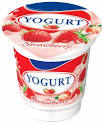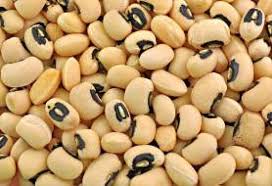Yoghurt Production in Nigeria; The Feasibility Report.

Yogurt is a cultured dairy product made by fermentation of heated milk with lactic acid bacteria, which convert lactose into lactic acid resulting in a reduction in pH. It is one of the most popular fermented milk products in the world and produced commercially in Nigeria.
Yoghurt is generally made from a standardized mixture containing whole milk, partially defatted milk, condensed skim milk cream and non-fat dry milk.
It is produced by the controlled fermentation of milk by two species of bacterial (Streptococcus sp. and Lactobacillus sp.).
Yoghurt has been described as a notoriously balanced food, containing almost the nutrients present in milk but in a more assimilable form.
It may or may not be flavoured according to desired taste. Common flavours used are banana, apple, strawberry, vanilla, chocolate, fruit juice and other condiments.
Yoghurt producers are innovating with various flavours of yoghurt products to sustain their market share, a step that has propelled growth of the industry. This came at the backdrop of campaign by food nutritionists insinuating that Nigerians are not drinking enough milk compared to global consumption rate.
As a result of this, there has been an increasing pressure on yoghurt producers to meet the growing demand for high-value yoghurt and sour milk products in the market. This has led to the sub-sector growing at an unprecedented rate and the driving force behind this enormous surge is a combination of population growth, rising incomes and urbanization.
The producers are also positioning their products based on consumers’ health consciousness (products with low sugar and cholesterol), while paying attention to product repackaging and availability.
The demand for the product is high in Nigeria as it is a fast moving consumer goods (FMCG). Yoghurt is a fermented milk, which has its origins in Eastern Europe, but is now consumed throughout the world.
The production technology is simple and the equipment can be locally fabricated.
The proposed production programme is two thousand (2,000) Litres/Day and the plant would operate at eighty percent (80%) of the installed capacity for a single shift of eight (8) hours per day for three hundred (300) working days per annum and producing nine hundred and sixty thousand (960,000) pieces of fifty (50) cl PET bottle of Yoghurt per annum.
Table of Contents
EXECUTIVE SUMMARY 1.0 Business Overview 1.1 Description of the Business 1.2 Vision and Mission Statement 1.3 Business Objective 1.4 Critical Success Factor of the Business 1.5 Current Status of Business 1.6 Description of the Business Industry 1.7 Contribution to Local and National Economy 2. Marketing Plan 2.1 Description of product 2.2 Product Packaging and delivery 2.3 The Opportunity 2.4 Pricing Strategy 2.5 Target Market 2.6 Distribution and Delivery Strategy 2.7 Promotional Strategy 2.8 Competition 3. Production Plan 3.1 Description of the Location 3.2 Raw Materials 3.3 Production Equipment 3.4 Production Process 3.5 Production Cost 3.6 Stock Control Process 3.7 Pre-Operating activities and expenses 3.7.1 Operating Activities and Expenses 3.8 Project Implementation Schedule 4.0 Organizational and Management Plan 4.1 Ownership of the business 4.2 Profile of the promoters 4.3 Key Management Staff 4.3.2 Management Support Units 4.4 Details of salary schedule 5. Financial Plan 5.1 Financial Assumption 5.2 Start -up Capital Estimation 5.3 Source of Capital 5.4 Security of Loan 5.5 Loan Repayment Plan 5.6 Profit and Loss Analysis 5.7 Cash Flow Analysis 5.8 Viability Analysis 6.0 Business Risk and mitigation factor 6.1 Business Risks 6.2 SWOT Analysis
Project Specification:
Additional Info
Get this Report
Direct bank transfer
To order the report, Please do pay the sum of ₦30,000 into
Account Name : Foraminifera Market Research Ltd
Account Number : 274 20 569 37
Account Name : Foraminifera Market Research Ltd
Account Number : 101 76 603 95
Account Name : Foraminifera Ventures
Account Number : 011 66 066 32
Make your payment directly into our bank account. Please use your Order ID as the payment reference. Your order will not be shipped until the funds have cleared in our account.
Instructions
After payment call us on 01 -29 52 413 / 08033782777 or email us at foraminiferamarketresearch@yahoo.com with the payment details. After payment confirmation, the soft copy of the report would be sent to you within 24 hours.



